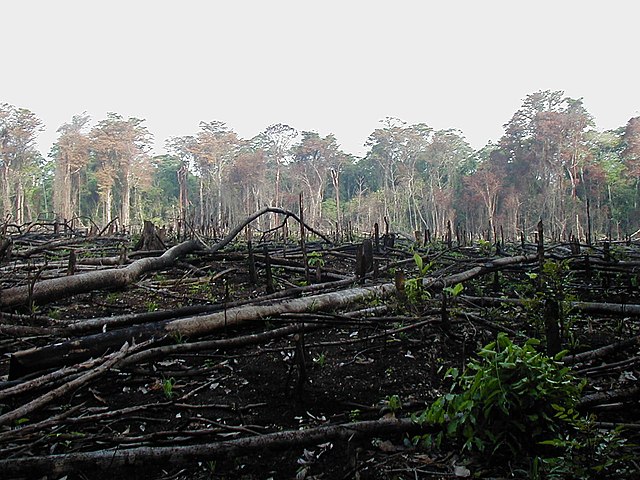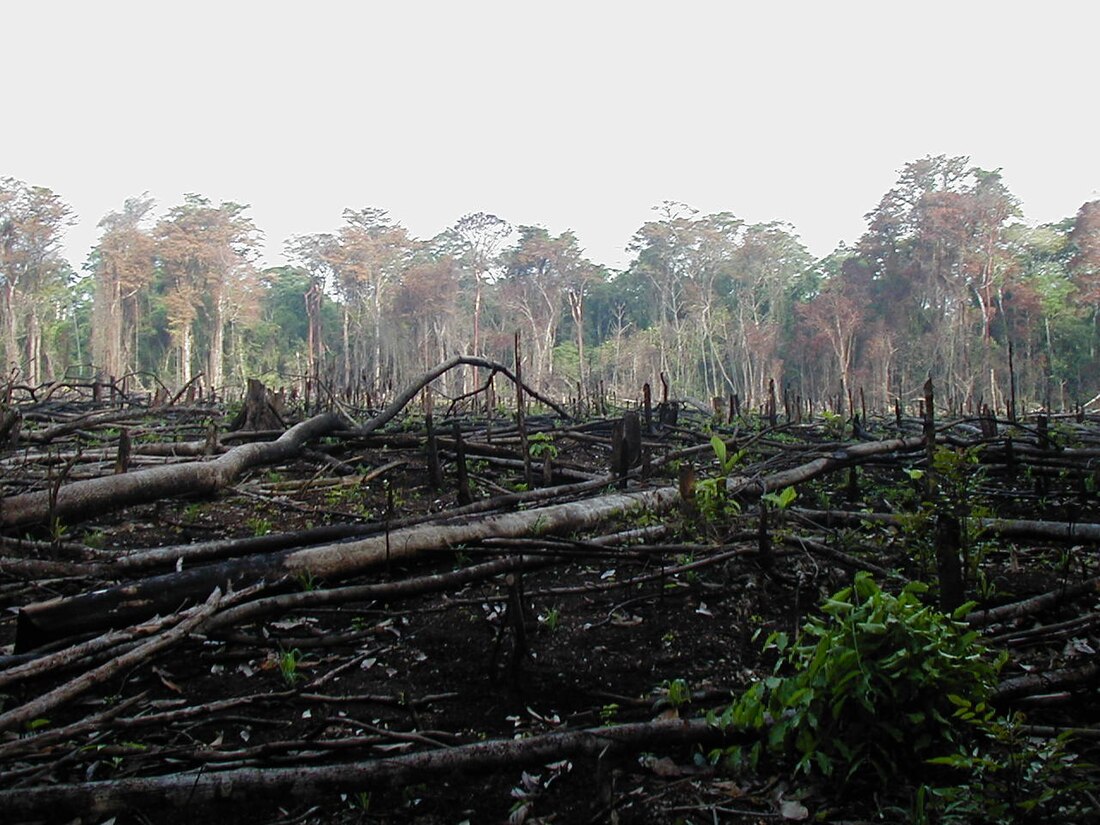Deforestation
removal of forest and conversion of the land to non-forest use From Wikipedia, the free encyclopedia
Remove ads
Deforestation is when forests are destroyed by cutting trees (logging) or burning them purposefully, without replanting more. The most common reason is to clear the land to make space for farms and ranches. They also cut trees for firewood and lumber and replace them with cities. Deforestation destroys the habitat of many animals, leading to their death. The loss is more severe in primary or old-growth forests, which are forests that have yet been untouched by humans. Deforestation also releases sequestered carbon.

Restoring trees in deforested places is called reforesting.
Remove ads
Causes of deforestation

Land has other uses besides growing trees. Farming and ranching are the two main motives that contribute to deforestation. Some land is also used for roads and buildings, especially in urban area. As the population grows, people need to remove more trees. They also use the wood from the trees as lumber to make buildings and other things, or they burn the trees as firewood.
Advantages to preserving forests: [1]
- Regulates the water cycle to some extent
- Produces soil, and prevents soil erosion
- Provides habitats for animals
- Provides some of our oxygen (some is produced in the sea)[2]
- Regulates temperature to some extent
Forests are often planted to protect against natural disasters. When forests are lost, very often the soil they protected is also lost. This loss of soil is called erosion.
Trees are important for carbon sequestration. To combat deforestation we need to first acknowledge the problems in front of us and come with innovative solutions. When the trees burn or rot, the carbon in them returns to the atmosphere in the form of carbon dioxide. Since carbon dioxide is a greenhouse gas, deforestation causes global warming. Tropical deforestation is responsible for about 20% of world greenhouse gas emissions.[3] Deforestation continues.[4][5]
Remove ads
References
Related pages
Other websites
Wikiwand - on
Seamless Wikipedia browsing. On steroids.
Remove ads
